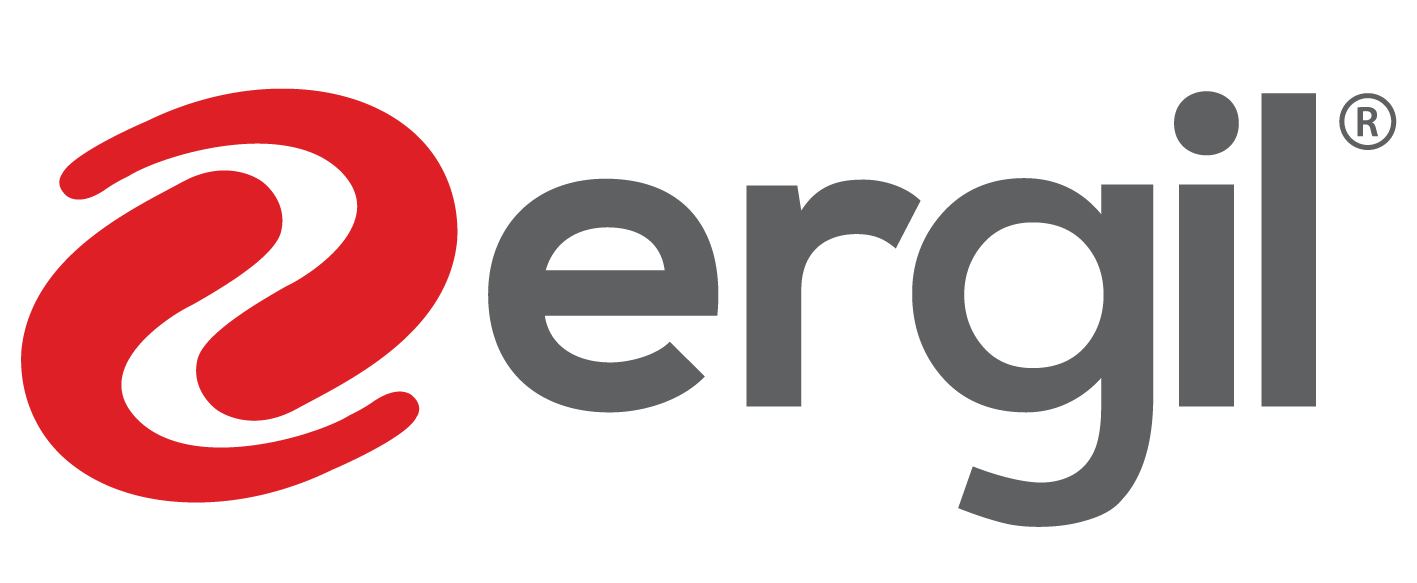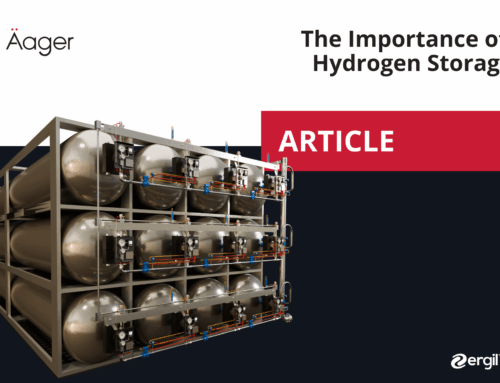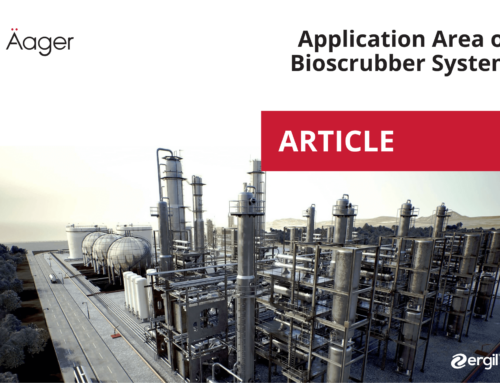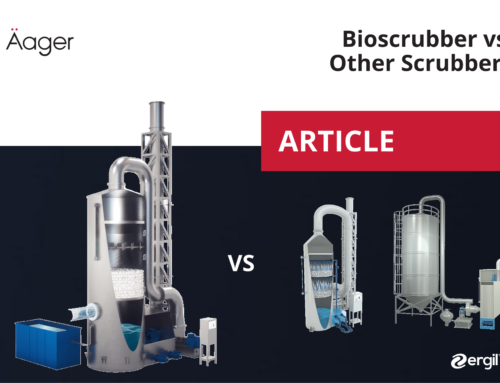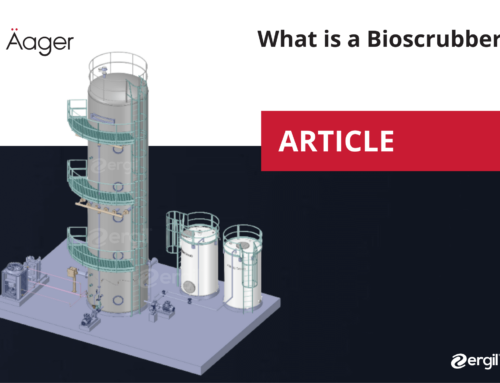Building the Future of Semiconductor Fabs
As the world rushes to expand semiconductor manufacturing capacity, one reality is clear: constructing next-generation fabrication plants (fabs) is one of the most complex industrial challenges ever undertaken.
With global investment projected to exceed $2.3 trillion between 2024 and 2032, this expansion is reshaping supply chains, economies, and the future of high-tech manufacturing.
Yet, despite the vast capital pouring into this sector, project delivery is constrained by three persistent bottlenecks: labor shortages, construction inefficiencies, and sustainability pressures.
To overcome them, the semiconductor industry is increasingly turning toward industrialized, modular, and skid-based construction models—an approach that ERGIL and Äager GmbH have mastered over four decades of serving the oil, gas, chemical, and water-treatment industries.
Today, we bring that same industrial discipline, precision, and sustainability focus to the semiconductor sector.
1. The Case for Modular Fabrication in Semiconductor Fab Construction
The adoption of prefabricated modular and skid equipment, along with off-site steel structures, offers substantial advantages over conventional site construction, making these methods particularly suitable for the complex and urgent demands of semiconductor fabrication (fab) construction.
Prefabrication and modular construction constitute subsets of off-site manufacturing, which involves the planning, design, fabrication, and assembly of building components away from the final site for rapid installation.
These practices, long used in industrial environments such as offshore oil rigs, now drive innovation in sectors like semiconductor fabs, data centers, and hydrogen facilities.
The superiority of industrialized construction lies in its ability to deliver accelerated schedules, higher quality assurance, improved cost control, and solutions for skilled labor shortages—all while advancing sustainability objectives.
2. Advantages of Modular Fabrication over Conventional Construction
Modular construction provides measurable benefits across seven key performance indicators.
3. Why Modularization Fits Semiconductor Fab Projects
The semiconductor sector’s requirements amplify the value of industrialized modular fabrication.
4. ERGIL’s Expertise — Built on Four Decades of Industrial Precision
ERGIL’s core competency lies in the design and fabrication of pressure vessels, process columns, storage tanks, absorbers, scrubbers, and modular skid systems.
Our facilities and teams operate under ASME U, U2, AD 2000, PED, DNV, and ISO 9001/14001/45001/3834-2 certifications, ensuring world-class reliability.
5. Strategic Manufacturing Hub — Mersin, Türkiye
Located at Türkiye’s largest seaport, ERGIL’s solar-powered facility in Mersin connects Europe, the Middle East, and Asia—offering strategic advantages for global fab supply chains.
| Advantage | Impact |
|---|---|
|
Proximity to Europe & Asia |
Faster, lower-cost logistics |
|
Free Trade Zone |
Duty-free export and simplified customs |
|
Seaport + Multimodal Links |
Efficient transport for oversized modules |
|
Renewable Energy |
100% solar-powered manufacturing |
6. Automation and Digital Manufacturing
ERGIL’s Industry 4.0 factory integrates automated welding, CNC cutting, ERP-linked QA, and non-destructive testing.
This automation doubles productivity and ensures full digital traceability—crucial for semiconductor-grade reproducibility.
| Advantage | Impact |
|---|---|
|
Proximity to Europe & Asia |
Faster, lower-cost logistics |
|
Free Trade Zone |
Duty-free export and simplified customs |
|
Seaport + Multimodal Links |
Efficient transport for oversized modules |
|
Renewable Energy |
100% solar-powered manufacturing |
7. Leadership in Sustainability (ESG)
ERGIL’s operations run entirely on renewable solar energy, eliminating Scope 2 emissions. Modular fabrication cuts material waste by up to 80% and CO2 emissions by 40%. Combined with ISO 14001 environmental and ISO 45001 safety certifications, our production supports the net-zero and RE100 goals of global semiconductor manufacturers. All fabrication and offices run on 100% solar power, eliminating operational Scope 2 emissions.
Modular production reduces waste by up to 80% and CO₂ by 40%, aligning directly with RE100 and net-zero carbon goals adopted by global fab operators.
| Metric | Impact |
|---|---|
| Material Waste | ↓ 80% |
| CO₂ Emissions | ↓ 40% |
| Renewable Energy Use | Efficient transport for oversized modules |
| Renewable Energy | 100% Solar |
| Certifications | ISO 9001, 14001, 45001, ASME, PED |
8. Industrial Discipline Meets High-Tech Innovation
The semiconductor industry’s demand for precision and reliability mirrors ERGIL’s heritage in oil & gas engineering.
We apply heavy-industry rigor—tested under the harshest conditions—to ultra-clean, high-spec fab environments.
“Industrialized modular fabrication will redefine semiconductor project delivery over the next decade.”
— McKinsey Global Semiconductor Outlook, 2024
“Modular techniques can reduce carbon footprint by up to 40% while cutting project timelines in half.”
— World Green Building Council, 2023
Conclusion
The semiconductor industry’s demand for precision and reliability mirrors ERGIL’s heritage in oil & gas engineering.
We apply heavy-industry rigor—tested under the harshest conditions—to ultra-clean, high-spec fab environments.
The future of semiconductor manufacturing demands precision, speed, and sustainability.
By merging four decades of industrial fabrication expertise with renewable-powered modular manufacturing, ERGIL and Äager GmbH redefine how the world’s most advanced facilities are built.
From oil refineries to semiconductor fabs, our mission remains unchanged:
Build smarter. Deliver faster. Operate cleaner.
Learn more about Semiconductor Fab: https://ergil.com/solutions/semiconductor-fab/
